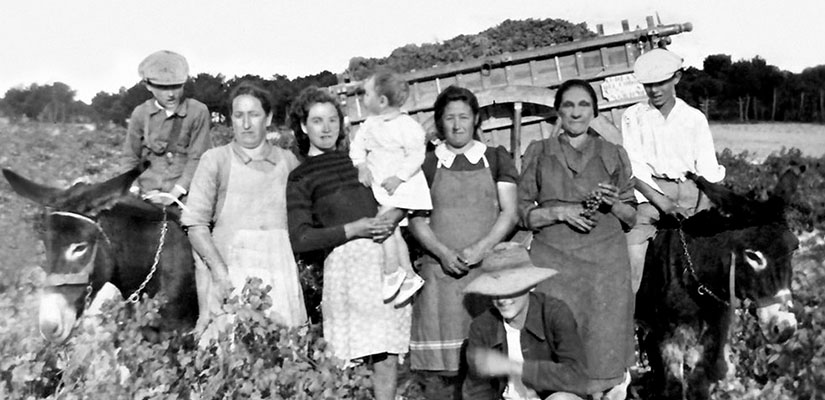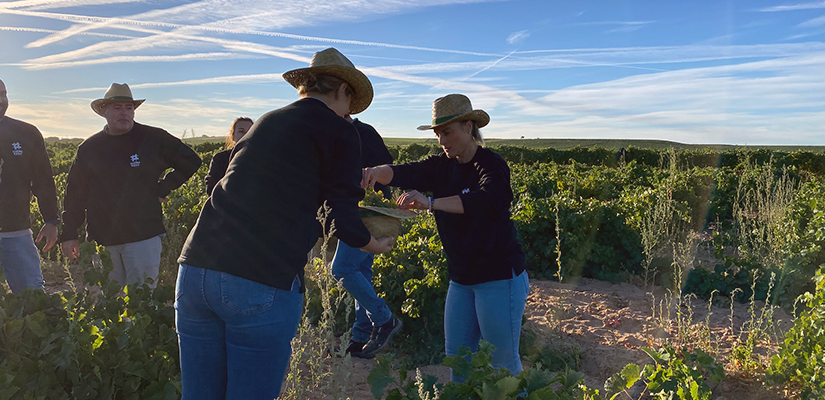
The value of cooperatives in generating positive impact
Cooperatives play a vital role in the wine industry, especially for small wineries and grape growers. They allow members to share costs and resources, creating a sense of community. This collaborative approach not only helps individual businesses but also encourages innovation and growth that can enhance the entire wine sector.
In Europe, wine cooperatives began to emerge in the late 19th and mid-20th centuries, with many forming in response to the phylloxera epidemic and the Great Depression. Today, the cooperative movement encompasses over a billion people globally. Such is its influence, that in 2016, UNESCO added cooperatives to its list of Intangible Cultural Heritage.*

Bodega Cuatro Rayas is a notable cooperative in Spain, with a winemaking history that began in 1935. Its dedicated community of over 300 members now cultivate an expansive 2,400 hectares of land under vine, which includes ungrafted, 120-year-old pre-phylloxera bush vines. Located in La Seca, its facilities produce nearly 15 million bottles of wine annually, distributed to over 50 countries. Cuatro Rayas has become widely recognised as the benchmark for Spanish white wine.
The cooperative has consistently prioritised the well-being of both the land and the individuals in rural communities at the heart of its mission. With a forward-thinking business model, they embrace innovation as the key factor for driving sustainability and ongoing improvement.
- Green & Social Verdejo: A program that encompasses actions throughout phases of its wine production to improve the living standards of its members and workers and to safeguard the environment.
- The LONGVERDEJO project: has facilitated the development of innovative techniques for selecting ancestral yeasts, as well as soil and plant management, to improve the ageing of Verdejo white wines.
- A new dealcoholised white wine: This product retains 100% Verdejo character, preserving the freshness and characteristic aromas of the grape while catering to a growing demand for lighter and more accessible options.
Initiatives like these highlight the effectiveness of cooperatives. They show the importance of cooperatives and their role in enhancing the positive social and environmental impact of the wine sector, as well as the sector's contribution to society as a whole. The value of their work should not be overlooked.
- Marta Juega, PhD, Head of Positive Impact
- *UNESCO Adds Cooperation to its Intangible Cultural Heritage List - NCBA CLUSA. https://ncbaclusa.coop/blog/unesco-adds-cooperation-to-its-intangible-cultural-heritage-list/
- Valladolid Chamber of Commerce highlights Cuatro Rayas’ socioeconomic impact in the province: €33M and almost 650 jobs. https://cuatrorayas.es/en/2023/03/valladolid-chamber-of-commerce-highlights-cuatro-rayas-socioeconomic-impact-in-the-province-e33m-and-almost-650-jobs/
- Cuatro Rayas: Nine decades of collaborative evolution. https://www.decanter.com/sponsored/cuatro-rayas-nine-decades-of-collaborative-evolution-554976/

